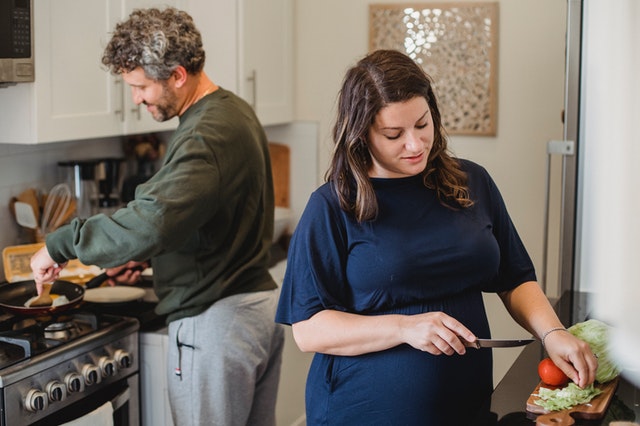
Pregnancy comes with a lot of additional nutritional intake requirements. Your body will require more vitamins and minerals added to your daily meals. It’s important to ensure that both you and the developing fetus get the necessary nutrients to help the baby grow, especially if you’re having a problem with your appetite. You need to know the best foods to eat that are packed with plenty of nutrients. This will provide both you and your baby with the vitamins and minerals you both need.
Overall, you’ll need folic acid to reduce any risk of tube defects, calcium for the building of strong bones, teeth, muscles and nerves, and iron for increased blood supply and distribution of oxygen. You also need iodine to help develop your baby’s brain and nervous system, vitamin D for strong immunity and DHA for the development of your baby’s brain and eye. Here’s a snippet of the best foods to eat during pregnancy that are high in nutrients, vitamins and minerals that are key in supporting your baby’s growth and development.
Proteins
Pregnancy requires a high protein intake since it’s a period of rapid growth and development. Lean meat which includes beef, pork, and chicken are among the top sources of high-quality protein that your baby needs. Beef and pork are rich in minerals like iron, choline, and B vitamins. Try out a range of protein sources for a balanced diet from legumes such as beans, lentils, nuts and seeds, soy products and plant-based protein powders.
Animal-based proteins like eggs, chicken, fish and beef which contain essential amino acids can also be included. Eggs are a great source of choline with about 80 calories, high-quality protein, fat, and many vitamins and minerals. They promote a baby’s brain development and prevent developmental abnormalities of the brain and spine.
Dairy products
Apart from consuming extra protein, your little one needs enough calcium. You can get this from dairy products like milk, cheese, and yogurt. Dairy products contain casein and whey, both of which are high-quality proteins and provide high amounts of phosphorus, zinc, B vitamins, and magnesium. Others also contain probiotic bacteria, which support digestive health. In case you’re lactose intolerant, check with your doctor to help recommend the best products.
Fruits and green leafy vegetables
Consume a wide range of fruits. The best way is to take fresh fruits or fruit juices though you can also eat frozen or canned produce. But, it’s recommended to take whole, fresh or frozen fruit rather than juice.
When pregnant you require more water- and fat-soluble vitamins like vitamins B12, A, and D, folate, choline, among others. You’ll also need these for lactation. Dark leafy greens like kale, broccoli and spinach are packed with nutrients that your baby will need to develop. Even if you don’t love greens, you have to figure out how to incorporate them into your meals. Leafy vegetables contain calcium, fiber, vitamin C, vitamin K, vitamin A, iron, folate, and potassium which reduce the risk of low birth weight. The high fiber content helps reduce constipation.
The list of foods to eat during pregnancy is inexhaustible. Find out more on which foods to eat and avoid during pregnancy. Always remember that your growing baby requires all the necessary nutrient-dense foods from whole grains, fruits and veggies, lean proteins, and healthy fats.
Hey welcome to my blog . I am a modern women who love to share any tips on lifestyle, health, travel. Hope you join me in this journey!

Speak Your Mind